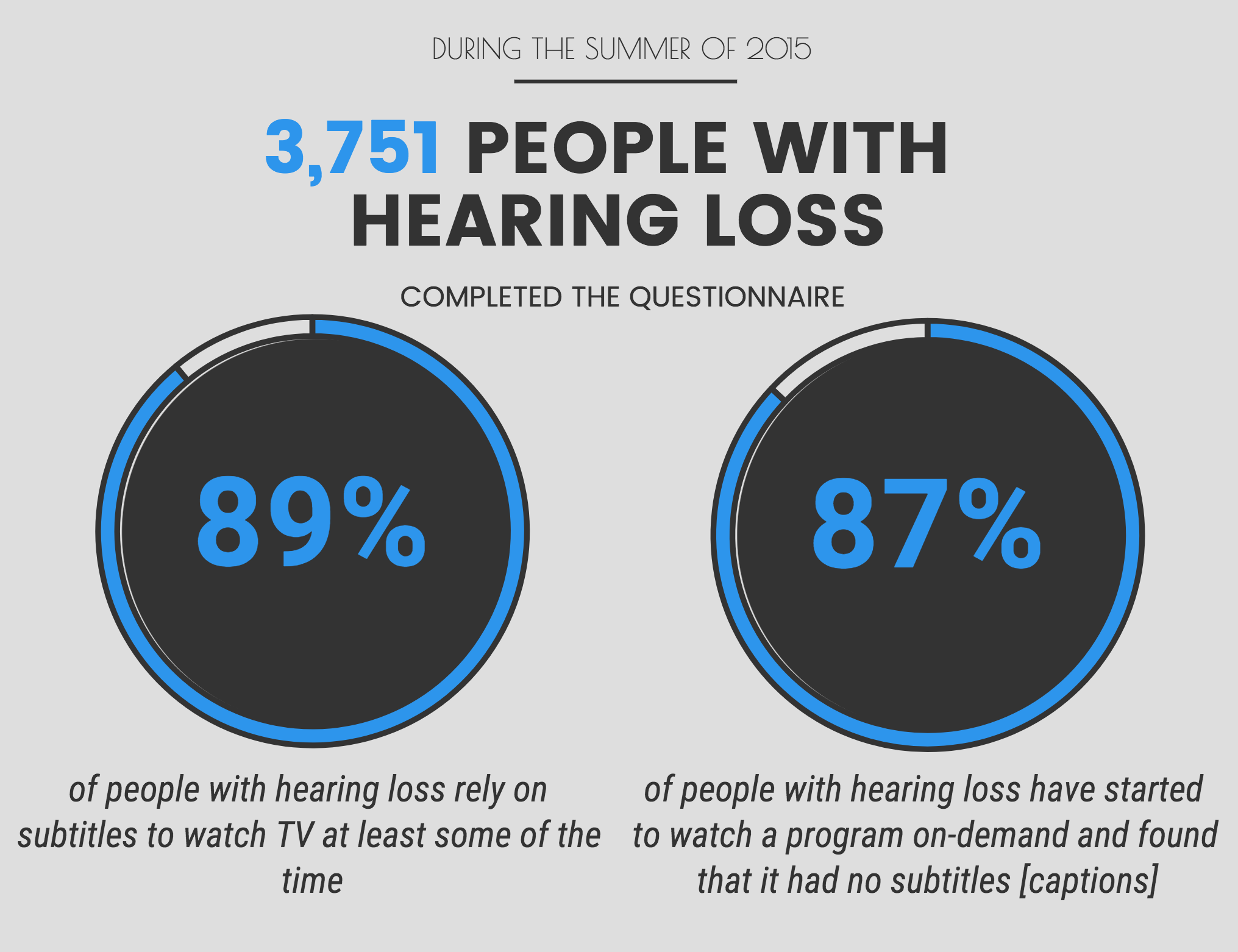UK Legal Update: Subtitles (Captions), Signing, and AD Requirements for On-Demand Content
Updated: October 20, 2023
There are 11 million people in the UK with some form of hearing loss – that’s one in six people. Despite on-demand services being more popular than ever before, until recently, there was no legal obligation to offer accessible on-demand content.
In June 2015, Action on Hearing Loss – a UK charity – along with thousands of followers asked the UK government to put an end to this digital exclusion. Earlier this year, they succeeded when the UK government passed an amendment requiring on-demand broadcasters to subtitle a minimum level of their content in order to comply with the new law.
A recent report, launched as part of Action on Hearing Loss’ Subtitle it! campaign, found several significant findings regarding subtitles and on-demand content.
In response to the impactful findings of this report, two recommendations were made:
- The Government should legislate to ensure that on-demand service providers are compelled to provide minimum levels of access services on their content, in line with existing regulation around linear TV.
- Providers of on-demand services should invest to increase the provision of access services across different platforms
Although the charity that advocated for this amendment focuses specifically on Deaf and hard of hearing members of society, the amendment addresses a broader range of disabilities and related accommodations. In addition to requiring subtitles and signing for Deaf and hard of hearing viewers, audio description for blind and low vision individuals is also required.
The Communications Act 2003 consolidated the telecommunication and broadcasting regulators in the UK and introduced the Office of Communications (Ofcom) as the industry regulator. The new amendment now includes regulations requiring on-demand program services to make several specific changes to ensure their services are accessible to people with disabilities impacting their sight, hearing, or both. The amendment states:
The requirements that may be imposed include—
- (a) requirements for programmes included in the services to be
accompanied by subtitling; - (b) requirements for such programmes to be accompanied by audio description
for the blind; - (c) requirements for such programmes to be presented in, or
translated into, sign language.
Work is already being done to implement these requirements. The Act was given Royal Assent in April of this year. Just last month, in July, a commencement order was signed by digital minister, Matt Hancock, setting the parts of the act – including new subtitling, signing, and description requirements – into motion. On-demand broadcasters are advised to plan for this transition by working with partners who can deliver high-quality and timely subtitles, closed captions, and audio descriptions.
__
To learn more about UK accessibility and subtitle regulations, download the free white paper.
Further Reading

Subscribe to the Blog Digest
Sign up to receive our blog digest and other information on this topic. You can unsubscribe anytime.
By subscribing you agree to our privacy policy.







